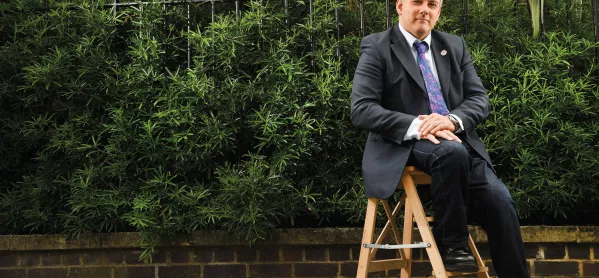The speech I made on Monday calling for an end to the cliff-edge of GCSEs at age 16 has certainly started the debate I hoped it would.
Those of you who have read the whole speech, rather than just the headlines, will know that I was absolutely not denigrating the importance of knowledge. I fully support the need for every young person to be able to access, through their schooling, a working knowledge of our cultural capital, our history and our literature.
But we must face the facts. With 226,000 skills shortage vacancies in our economy in 2017, up from 91,000 in 2011, and more than half a million young people unemployed, the current system is simply not working. The Open University suggests skills shortages are costing our economy over £6 billion a year. Our current skills deficit does not even include the march of the robots, with some estimates suggesting that up to 15 million jobs are under threat from AI and automation.
Quick read: DfE updates GCSE English and maths resits policy
In depth: A guide to what works best in GCSE revision
More news: GCSEs now ‘redundant’, claims Lord Baker
GCSEs: 'Increasingly anachronistic'?
It’s little wonder that Carolyn Fairbairn, director general of the CBI, asked the Royal Society Business Forum the day after my speech: “In a world where few employers even ask for GCSE results and there are better ways of assessing schools, why should we require pupils to cram for a set of exams which feel increasingly anachronistic?”
It is simply wrong for commentators like Mark Lehain – someone for whom I have enormous respect – to suggest that scrapping GCSEs would advantage the privileged.
There is no more important rung on the ladder of social justice than to give every young person the knowledge, skills and behaviours they require to find fulfilling work. The figures above show that the current system is failing to do so and the current suite of accountability measures is simply not delivering the broad and balanced curriculum that everyone deserves. There has been a fall in GCSE entries in design and technology of over 50 per cent since 2010 and a reduction in creative subjects of 20 per cent over the same period.
'Robbing young people of opportunities'
Measures like the EBacc are robbing young people of the opportunity to develop the broad skills and experiences that would set them on the path to high-quality apprenticeships and to becoming our next generation of engineers and inventors.
As Peter Finegold, head of education and skills at the Institution of Mechanical Engineers, said in response to my speech: “One way of ensuring more young people keep their options open for longer would be to introduce a broader baccalaureate… not only would Robert Halfon’s proposed changes benefit engineering, they would also ensure that young people made better choices leading to a fulfilling career in a whole range of sectors.”
It is completely understandable that, when asked on a chat forum, young people who are currently in the midst of their GCSEs are concerned about change. I would say to them what I have made very clear in this argument so far – this is not about a sudden change, but about creating a national debate leading to a sea change that could take place over the course of a decade.
Knowledge and skills both important
It is interesting that parents, wanting the best for their children, would support that move, with almost three-quarters (73 per cent) saying that they believe there is too much emphasis currently on exam grades in secondary school. One parent and teacher responding to Leora Cruddas’ piece in Tes online said: "A period of stability is lovely. But stability at a cost of our children's futures flies in the face of what we go into teaching to do."
In that same article, Leora claims that this discussion relies on "the tired knowledge-skills debate". As I said in my speech, I absolutely want to move beyond that.
A core of knowledge is important and it is every young person’s right, but so are the skills and behaviours they need for a successful career and to be a well-rounded adult. Like hundreds of others countries across the world that use the International Baccalaureate, our education system can deliver this and I believe it is time not to close down to discussion but to open up a national debate on this issue. Let us make our education system fit for the 21st century.
Robert Halton is the MP for Harlow, and chair of the Commons Education Select Committee





